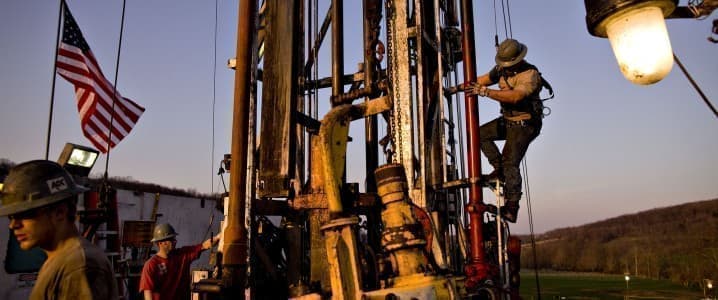Unlike in previous years, the U.S. shale patch will not have a large say in where oil prices will be going in the coming months. Currently, control over the market’s marginal oil supply and oil prices is firmly in the hands of the OPEC+ alliance as U.S. shale producers continue to stick to discipline in spending.
That’s the belief not only of analysts and the largest oil trading houses in the world, but also of the largest U.S. shale operator itself—Pioneer Natural Resources.
U.S. oil producers are keeping a never-seen-before discipline in spending on new supply, preferring instead to reward shareholders and attract investors with higher dividends and healthier balance sheets.
Even though the benchmark U.S. oil price, WTI Crude, has consistently traded above $60 a barrel for nearly six months now, the shale patch is not rushing into overproduction.
Not again.
The discipline in spending and new drilling activity is one of the reasons for a tightening oil market while demand is rebounding from the pandemic. Yet, unlike in previous boom-and-bust cycles, U.S. shale producers have very little control (or none at all) over where prices are going because American operators, especially the listed firms, have little interest in growing production. Their primary concern now is how to attract investors, how to access capital, and how to cope with the U.S. Administration’s planned or proposed restrictions on the oil and gas industry.
“Everybody’s going to be disciplined, regardless whether it’s $75 Brent, $80 Brent, or $100 Brent,” Scott Sheffield, CEO at Pioneer Natural Resources, told the Financial Times.
“All the shareholders that I’ve talked to said that if anybody goes back to growth, they will punish those companies,” said the chief executive of the top operator in the Permian.
According to Sheffield, U.S. shale producers will not reach, ever again, the record annual production growth of 1.5 million barrels per day (bpd) seen in 2018 and 2019 just before the pandemic.
For a couple of years, the shale patch may see annual growth at a maximum of 1 million bpd, Pioneer Natural Resources’ CEO told FT.
Global oil supply cannot rely on U.S. shale production for significantly more production, Sheffield says, noting that “It’s really under Opec control.”
In the short term, American producers are not expected to add meaningful volumes to global supply, and the direction of oil prices is in the hands of OPEC+, the world’s top traders say.
Expect no meaningful extra supply from the U.S. this winter, Mike Muller, the head of Asia for the largest independent oil trader, Vitol, said on Sunday during a webinar hosted by Gulf Intelligence.
“For this particular winter control over prices is pretty much in the hands of OPEC+,” Muller said.
“The rig count is simply not there for production to catch up in a way that would be necessary if you needed extra oil,” he added.
The U.S. rig count is rising, but not at a fast enough pace to warrant much additional supply as higher drilling activity offsets production declines.
“The U.S. shale industry is showing very strong discipline. Oil prices are roughly double what they were a year ago and despite that we’re not seeing a huge increase in drilling,” Ben Luckock, Co-Head of Oil Trading at commodity trading giant Trafigura, told Bloomberg in an interview last week.
Oil production in Texas increased, “but at a significantly slower pace,” according to executives at exploration and production firms in the Q3 Dallas Fed Energy Survey.
An executive at one producer said in comments to the survey:
“We are encouraged by the restraint shown by U.S. upstream operators. By restricting capital expenditure, we are healing historic overproduction of both oil and natural gas. We believe investors will be attracted back into the E&P space if, as an industry, we continue on this path for at least a year or two more to deleverage balance sheets and return capital to investors.”
By Tsvetana Paraskova for Oilprice.com
More Top Reads from Oilprice.com:
- WTI Crude Oil Price Hits 7-Year High
- The Real Reason OPEC+ Refused To Boost Production Further
- Natural Gas Stocks To Watch As The Energy Crisis Goes Global



















That is why OPEC+ has emerged from the pandemic as the most influential and respected player in the global oil market. It is also why the fate of US shale oil is now in the hands of OPEC+.
U.S. oil producers are keeping a never-seen-before discipline in spending on new supply. This is good for the stability of the global oil market, shareholders and the financial balances of shale producers.
If shale oil drillers go back to the bad old habits of reckless production, OPEC+ will pursue a market share strategy by flooding the market causing crude oil prices to fall below the breakeven prices of the majority of the shale drillers thus pushing them to the brink of bankruptcy.
Dr Mamdouh G Salameh
International Oil Economist
Visiting Professor of Energy Economics at ESCP Europe Business School, London